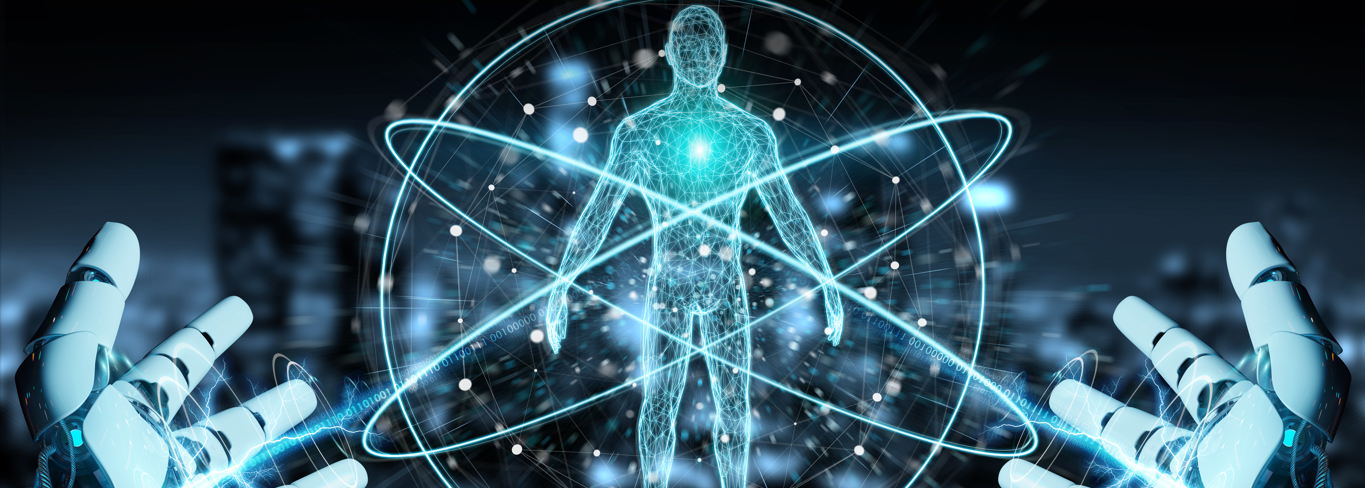The Emerging role of Artificial Intelligence in Diagnostics
 20 Aug, 2022
20 Aug, 2022
The increasing demand of AI is changing the modern machines in medical industry. Learn here more about AI in diagnostics and healthcare.
AI in Healthcare
The incorporation of Artificial Intelligence (AI) in healthcare is a revolutionary concept that is rapidly changing modern medicine. AI is an umbrella term that covers big data, analytics, and information processing among machines. It includes processes like automation and machine learning which have transformed medical diagnosis, treatment, and the way we perceive personal health. Innovations in these technologies have enabled machines to efficiently process large volumes of health data, to identify symptoms and risk factors of major illnesses at an early stage.
The efficiency of AI powered mechanisms in diagnostics is making good quality healthcare more accessible while also reducing costs. It is also increasing health coverage in remote areas that have a limited number of technicians and facilities.
Quick Read Section
- AI has increased accessibility to healthcare in remote areas with limited resources.
- Predictive analytics enable faster diagnosis of life-threatening diseases like cancer, cardiovascular diseases, and dementia.
- AI mechanisms significantly reduce administrative workload and alleviate physician burnout
- Challenges and Ethical concerns – why AI cannot replace doctors
How AI enables early diagnosis for cancer, cardiovascular diseases, and dementia
Health check-ups are rapidly evolving with advancements in technology that has enabled early detection of life-threatening diseases. AI has transformed medical imaging making test results more comprehensive and accurate. Given below are a few examples:
Cancer
Machine learning algorithms use existing images as points of reference to detect cancer and its variations in the body, faster than trained physicians. Studies suggest that this AI is particularly effective in diagnosing lung cancer at an early stage while it is localised in the lungs. It is also equipped to detect the minute DNA and RNA fragments produced by cancerous cells – which appear before the symptoms start. This helps patients start treatment sooner and reduces the risk of it spreading to other organs.
Cardiovascular diseases
Big data analytics along with machine learning have increased accuracy of clinical predictions for at-risk heart patients. With data from MRIs, AI analyses heart structures over a period of time to assess and predict any abnormalities faster than clinicians.
Dementia
Diagnosis of dementia is a complicated process that can take months with the standard procedure since its symptoms often resemble the general cognitive impairment linked to old age. Researchers at the University of Cambridge developed a machine learning algorithm that can detect structural changes in the brain – when combined with standard memory tests these can predict the likelihood of dementia in its early stages with up to 80% accuracy.
How AI supports Administration and Physicians
The gap between the demand andsupply of medical professionals has led to an immense amount of pressure on physicians. They work long hours and deal with an overwhelming volume of data on a daily basis. The shortage of technicians further reduces the average time they spend attending to patients. These factors collectively lead to burnout among physicians; this makes the entire system inefficient, and it ultimately compromises quality healthcare.
The most affected departments include the emergency unit, critical care, internal medicine, and neurology etc. These involve the most volume of imaging data. AI offers a set of effective solutions to manage this data and reduce administrative workload. Machine learning along with other AI backed applications can streamline administrative functions and improve operations.
An effective administration alleviates the pressure faced by clinicians, allowing them more time with patients. This makes the entire process of diagnostics more efficient, while also reducing costs significantly.
Why AI cannot replace doctors
The existing and constantly developing technology has transformed the healthcare industry altogether. It brings an ease in functionality that has made operations smoother. However, its implementation brings a fair share of challenges and ethical concerns considering the sensitive nature of data involved. Some of these are listed below:
Consent
To what extent is the clinician responsible for providing technical information regarding the AI and its shortcomings before it is used?
Data Privacy and Protection
Who is responsible for securing the patient’s health data and ensuring it isn’t misused? Does the patient have any control over their data?
Algorithmic bias
If the AI is trained using a homogenous dataset how is it meant to be applied universally? Who is liable for the errors due to this bias?
The complexity of this technology increases the risk involved in integrating it with modern medicine. This is why complete automation of healthcare is not feasible. AI is meant to only provide a suggested diagnosis with the data supplied, which has to be assessed by a medical professional. The idea of introducing this concept is not to replace doctors – but it is just to analyse large volumes of data and aiding the diagnostics in order to make quality healthcare more efficient.
As we evolve towards a technologically advanced healthcare system, the importance of a health insurance continues to grow. To find health insurance plans, that suit your needs please contact us today!

Elevate Your Health Coverage to the Next Level!
Congratulations on taking the first step towards securing your health!
Now, imagine having even greater peace of mind with our Comprehensive Health Insurance plan.
Enjoy enhanced coverage, wider scope, and ultimate protection for you and your loved ones.
Need more help?
 Buy Now
Buy Now Online Plans
Online Plans



